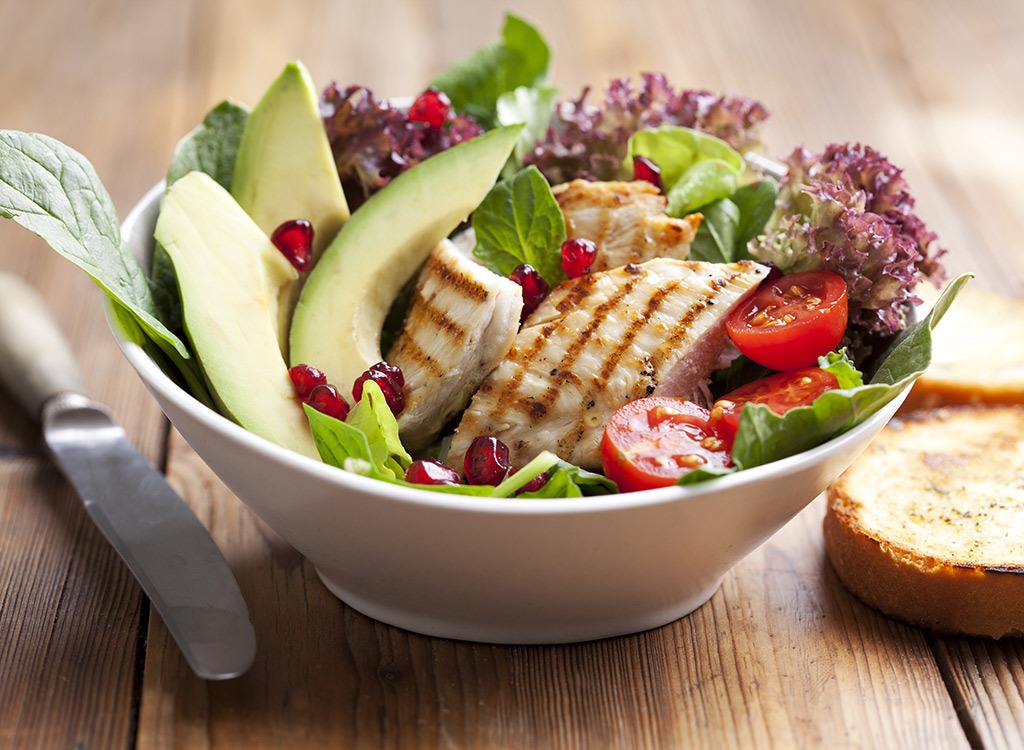5 Rules of Rapid Fat Loss

There's a lot of detailed information out there about exactly what you should do to get a slim body and a rock-hard stomach. But none of those eating hacks matter if the bedrock of your diet is actually quicksand. Here are the 5 unshakeable rules to follow to get healthy and lose fat fast. Once you have these down, you can fine-tune your diet and workout plan to dial up your weight loss even further. But these are your foundation. The rest is just details.
Burn More Calories Than You Eat
Weight loss is simple: if you burn more calories than you consume, you’ll drop pounds. Sure, where your calories come from matters, but at the most basic level, even if you're eating too much healthy food, you still won't lose weight. Too many people underestimate how much they eat and overestimate how many calories they burn. Avoid the guesswork and keep a food journal for a week. Count up exactly how many calories you’re averaging. You may be surprised.
Now start eating 250 fewer calories per day. You'll be surprised how easy this is to do when you measure portion sizes. Any junk or processed food you’re eating should be the first to go. If you can, try burning 250 additional calories each day. Combined, these two changes will stoke your fat-burning fire.
Eat More Protein
Of all the foods you eat, the high-protein ones are the most important for losing fat for three reasons: they keep you feeling full, which prevents overeating and snacking; they boost your calorie burn throughout the day because protein takes more energy to digest than either carbs or fat; and, when paired with weight training, a high-protein diet prevents muscle loss.
Eat at least one gram of protein per pound of your body weight from whole, lean sources like lean meats, eggs, fish and plant-based protein powders.
Eat More Healthy Fats
Fat is not the enemy, it just has a bad reputation. Healthy fats like coconut oil, nuts and avocados will keep you full hours after you meal, which stops you from diving into your stash of unhealthy snacks.
Eat more healthy fats and cut back on carbs, which can spike blood sugar and elevate your insulin levels, leading to more fat storage. Get at least 25% of your calories from good sources of fat and avoid artificial trans fats, which have been linked to numerous health problems like heart disease. Make sure you read those packages, though! Anywhere you can point to the word "hydrogenated" in an ingredients list means the snack includes trans fats, even if the package says it has none.
Get Stronger
Too many people log mile after mile on the treadmill without even glancing at the weights. While cardio can help you burn a few calories, it does nothing to develop the muscles underneath your fat, the ones that boost your resting metabolism. Too much cardio along with a caloric deficit can also cause you to lose muscle and make you weaker.
Here's the thing it may be hard to understand: Even when your goal is to be smaller, you still need to lift heavy and build strength. No, ladies, you won't build bulky muscles, we promise. Heavy weights help improving your body composition so that when you do get smaller, you're also toned. Each week, train using big exercises like squats, deadlifts and presses for sets of 4–8 reps.
Sleep at Least 7 Hours a Night
Cutting back on sleep increases levels of cortisol, a stress hormone, which causes fat storage. In fact, shorter amounts of sleep were associated with higher BMI levels and larger waistlines in men, Japanese researchers found when they conducted a study of more than 6,000 participants. Sleep deprivation also interferes with recovery, so you won't be able to workout as hard the next time you hit the gym.
Get at least seven hours of uninterrupted sleep every night. If you have trouble sleeping, stop drinking caffeine after midday, limit your alcohol consumption (which ruins sleep quality) and create a pre-bed ritual to get your body and mind ready for sleep (that doesn't include backlit devises like your TV or tablet).
Courtesy of Men's Fitness








